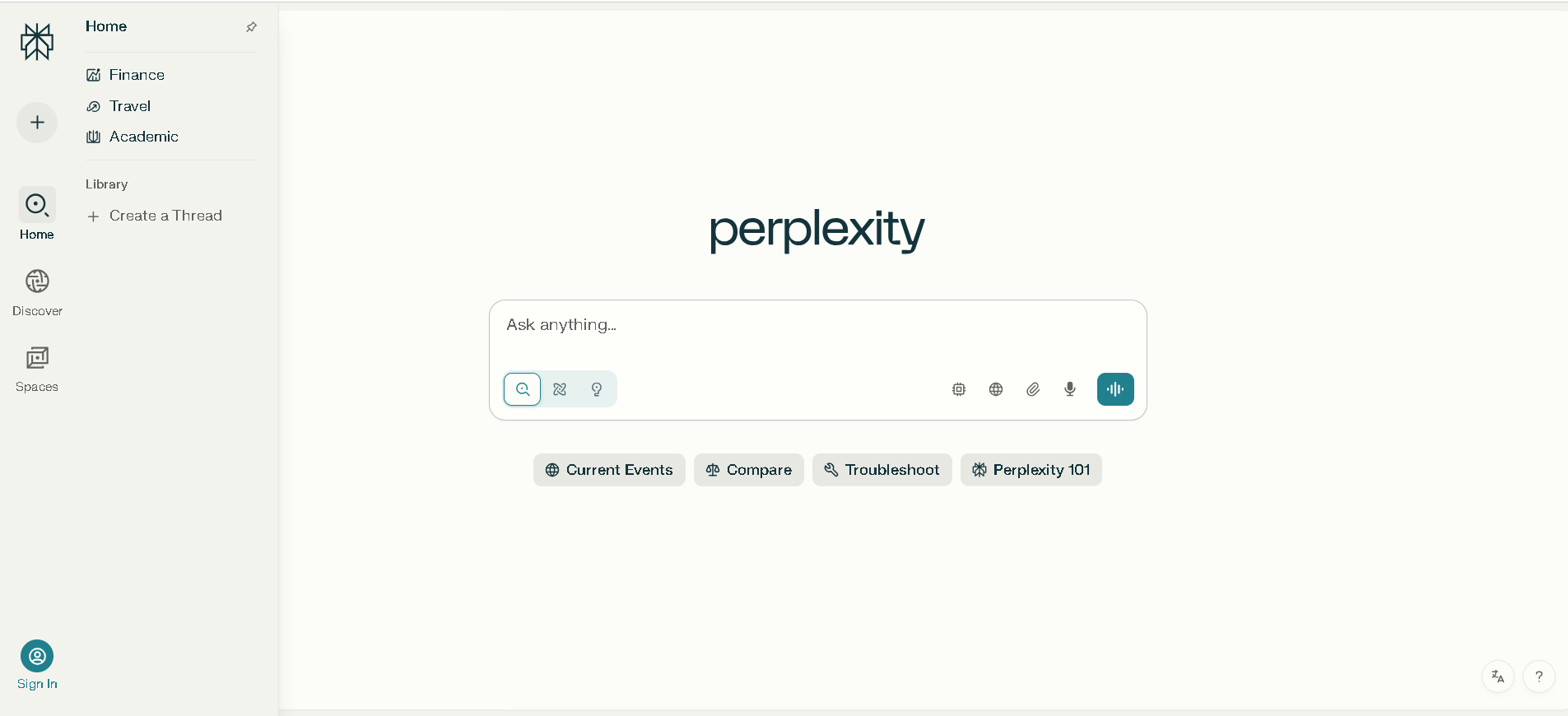
- Researchers & Students: Explore topics deeply with cited explanations and follow-up questions.
- Content & SEO Writers: Quickly gather facts, summaries, and source links for articles and reports.
- Professionals & Market Analysts: Gain structured insights into business trends, legal queries, and industry data.
- Developers & Teams: Integrate its API for real-time Q&A, knowledge hubs, and internal file search.
- General Users: Use free web, mobile, or browser-extension interfaces for daily information needs.
How to Use Perplexity AI?
- Visit the Web or Use Apps: Access via browser, Chrome extension, macOS app, iOS/Android, or voice-powered assistants.
- Ask Queries: Enter natural questions; the system retrieves live data and synthesizes answers with citations.
- Follow Up or Use Pro Mode: Pro Search invites clarifications and supports research features like “Spaces.”
- Upload Files (Pro): Advanced users can search internal documents, code, and even images via Pro.
- Explore & Organize: Save threads into Spaces, generate shareable Pages, or integrate via API.
- Real-Time & Cited Answers: Synthesizes up-to-date web info with verifiable citations.
- Hybrid Search + Chat: Combines instant responses with conversational dialogue and follow-ups.
- Multimodal Capability: Pro tier supports uploading and analyzing documents, images, and code.
- Model Flexibility: Offers best-of-breed backends (GPT-4.1, Claude 4, Sonar) selectable per need.
- Extensible Ecosystem: Includes Spaces for research organization, Pages for content creation, and API for integration.
- Transparent citations increase trust and verifiability
- Conversational QA enables deeper inquiry
- Model selection allows quality customization
- Spaces and Pages accelerate research workflows
- Free access includes powerful web-based search
- Can still hallucinate unsupported details occasionally
- Legal disputes with media like BBC highlight web-scraping concerns
- Free tier has usage limits; Pro subscription needed for advanced features
Free
$ 0.00
3 Pro searches per day
Upload 3 files per day
Paid
$20/month
Unlimited access to Perplexity Research
10x as many citations in answers
Powered by the latest top AI models
Upload unlimited documents and images
Proud of the love you're getting? Show off your AI Toolbook reviews—then invite more fans to share the love and build your credibility.
Add an AI Toolbook badge to your site—an easy way to drive followers, showcase updates, and collect reviews. It's like a mini 24/7 billboard for your AI.
Reviews
Rating Distribution
Average score
Popular Mention
FAQs
Similar AI Tools
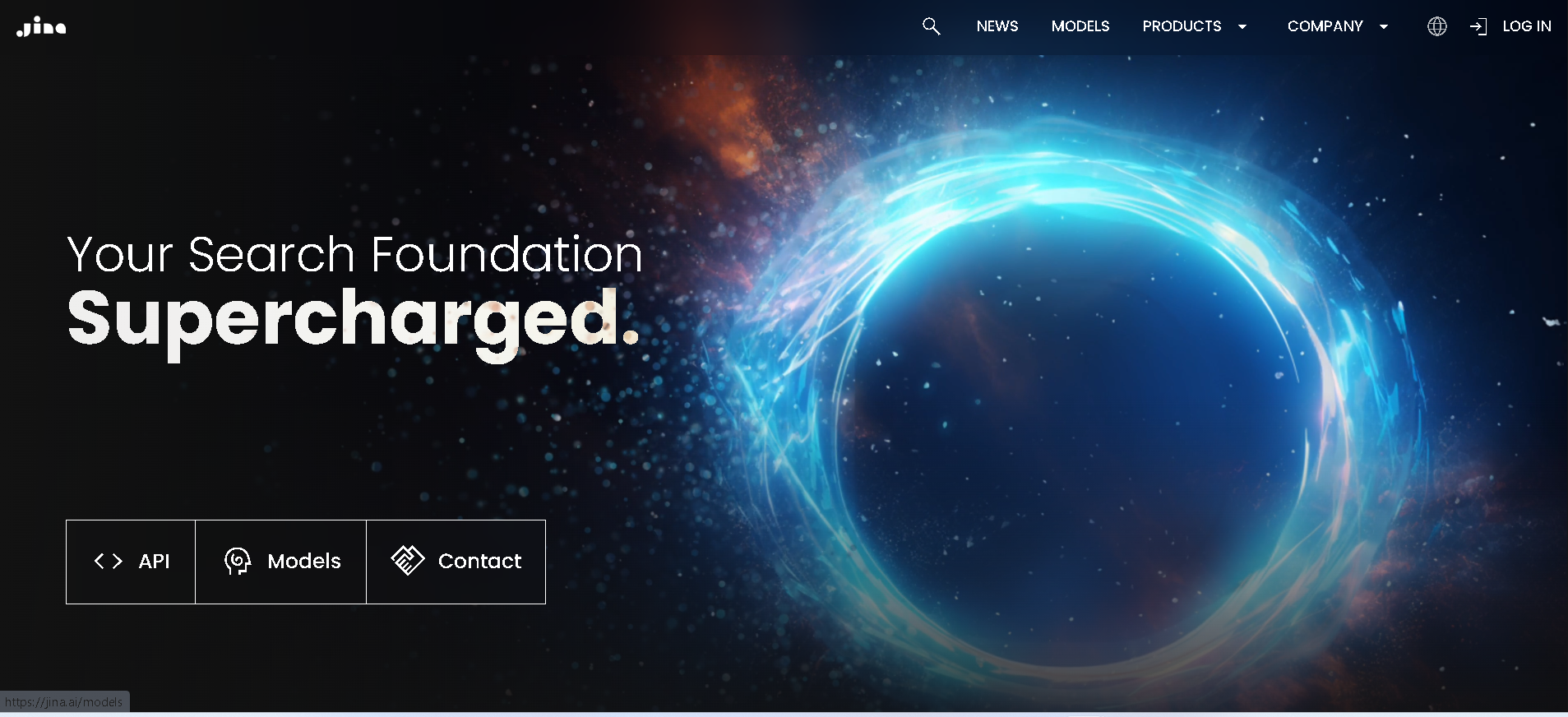
jina
Jina AI is a Berlin-based software company that provides a "search foundation" platform, offering various AI-powered tools designed to help developers build the next generation of search applications for unstructured data. Its mission is to enable businesses to create reliable and high-quality Generative AI (GenAI) and multimodal search applications by combining Embeddings, Rerankers, and Small Language Models (SLMs). Jina AI's tools are designed to provide real-time, accurate, and unbiased information, optimized for LLMs and AI agents.

jina
Jina AI is a Berlin-based software company that provides a "search foundation" platform, offering various AI-powered tools designed to help developers build the next generation of search applications for unstructured data. Its mission is to enable businesses to create reliable and high-quality Generative AI (GenAI) and multimodal search applications by combining Embeddings, Rerankers, and Small Language Models (SLMs). Jina AI's tools are designed to provide real-time, accurate, and unbiased information, optimized for LLMs and AI agents.

jina
Jina AI is a Berlin-based software company that provides a "search foundation" platform, offering various AI-powered tools designed to help developers build the next generation of search applications for unstructured data. Its mission is to enable businesses to create reliable and high-quality Generative AI (GenAI) and multimodal search applications by combining Embeddings, Rerankers, and Small Language Models (SLMs). Jina AI's tools are designed to provide real-time, accurate, and unbiased information, optimized for LLMs and AI agents.
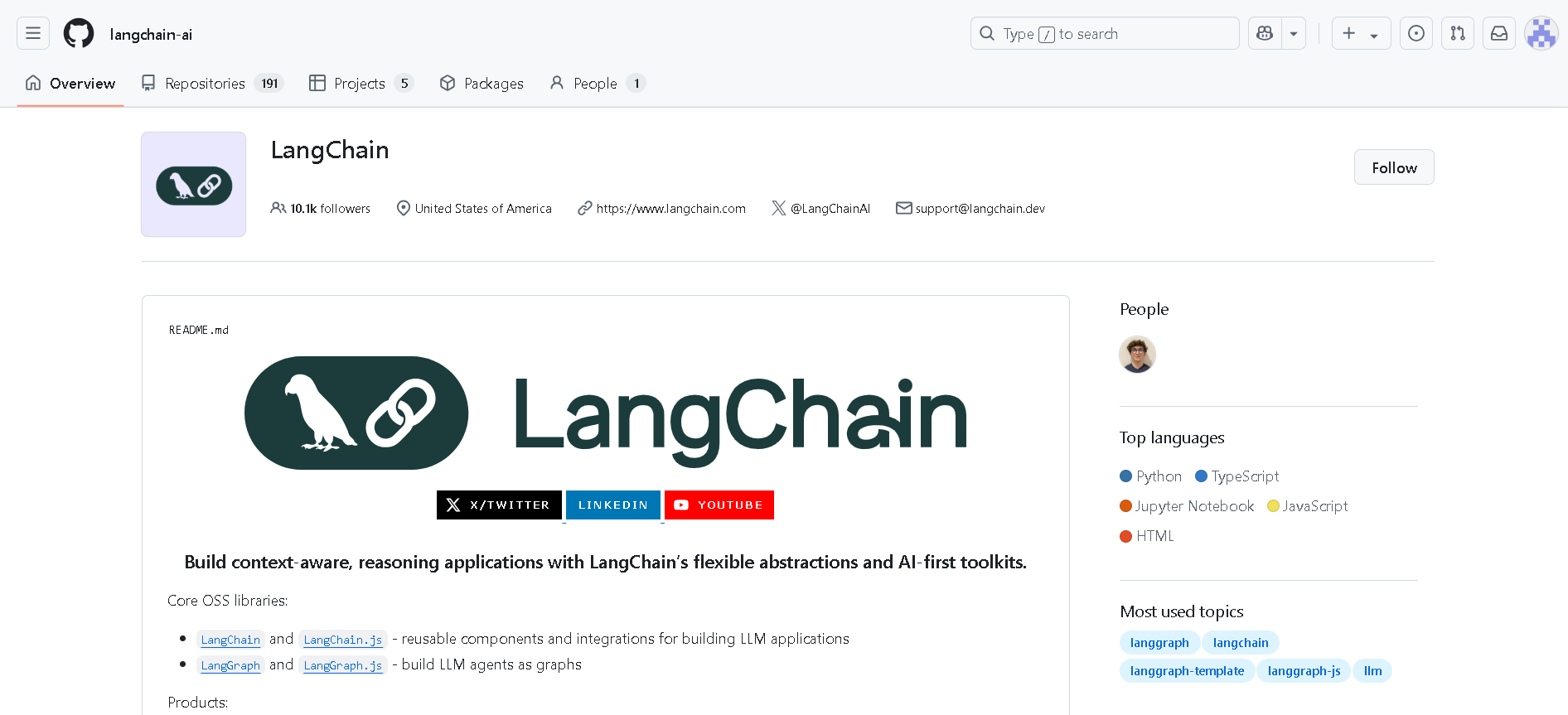

LangChain AI
LangChain AI Local Deep Researcher is an autonomous, fully local web research assistant designed to conduct in-depth research on user-provided topics. It leverages local Large Language Models (LLMs) hosted by Ollama or LM Studio to iteratively generate search queries, summarize findings from web sources, and refine its understanding by identifying and addressing knowledge gaps. The final output is a comprehensive markdown report with citations to all sources.


LangChain AI
LangChain AI Local Deep Researcher is an autonomous, fully local web research assistant designed to conduct in-depth research on user-provided topics. It leverages local Large Language Models (LLMs) hosted by Ollama or LM Studio to iteratively generate search queries, summarize findings from web sources, and refine its understanding by identifying and addressing knowledge gaps. The final output is a comprehensive markdown report with citations to all sources.


LangChain AI
LangChain AI Local Deep Researcher is an autonomous, fully local web research assistant designed to conduct in-depth research on user-provided topics. It leverages local Large Language Models (LLMs) hosted by Ollama or LM Studio to iteratively generate search queries, summarize findings from web sources, and refine its understanding by identifying and addressing knowledge gaps. The final output is a comprehensive markdown report with citations to all sources.

GPT-4o Search Preview is a powerful experimental feature of OpenAI’s GPT-4o model, designed to act as a high-performance retrieval system. Rather than just generating answers from training data, it allows the model to search through large datasets, documents, or knowledge bases to surface relevant results with context-aware accuracy. Think of it as your AI assistant with built-in research superpowers—faster, smarter, and surprisingly precise. This preview gives developers a taste of what’s coming next: an intelligent search engine built directly into the GPT-4o ecosystem.


OpenAI GPT 4o Sear..
GPT-4o Search Preview is a powerful experimental feature of OpenAI’s GPT-4o model, designed to act as a high-performance retrieval system. Rather than just generating answers from training data, it allows the model to search through large datasets, documents, or knowledge bases to surface relevant results with context-aware accuracy. Think of it as your AI assistant with built-in research superpowers—faster, smarter, and surprisingly precise. This preview gives developers a taste of what’s coming next: an intelligent search engine built directly into the GPT-4o ecosystem.


OpenAI GPT 4o Sear..
GPT-4o Search Preview is a powerful experimental feature of OpenAI’s GPT-4o model, designed to act as a high-performance retrieval system. Rather than just generating answers from training data, it allows the model to search through large datasets, documents, or knowledge bases to surface relevant results with context-aware accuracy. Think of it as your AI assistant with built-in research superpowers—faster, smarter, and surprisingly precise. This preview gives developers a taste of what’s coming next: an intelligent search engine built directly into the GPT-4o ecosystem.
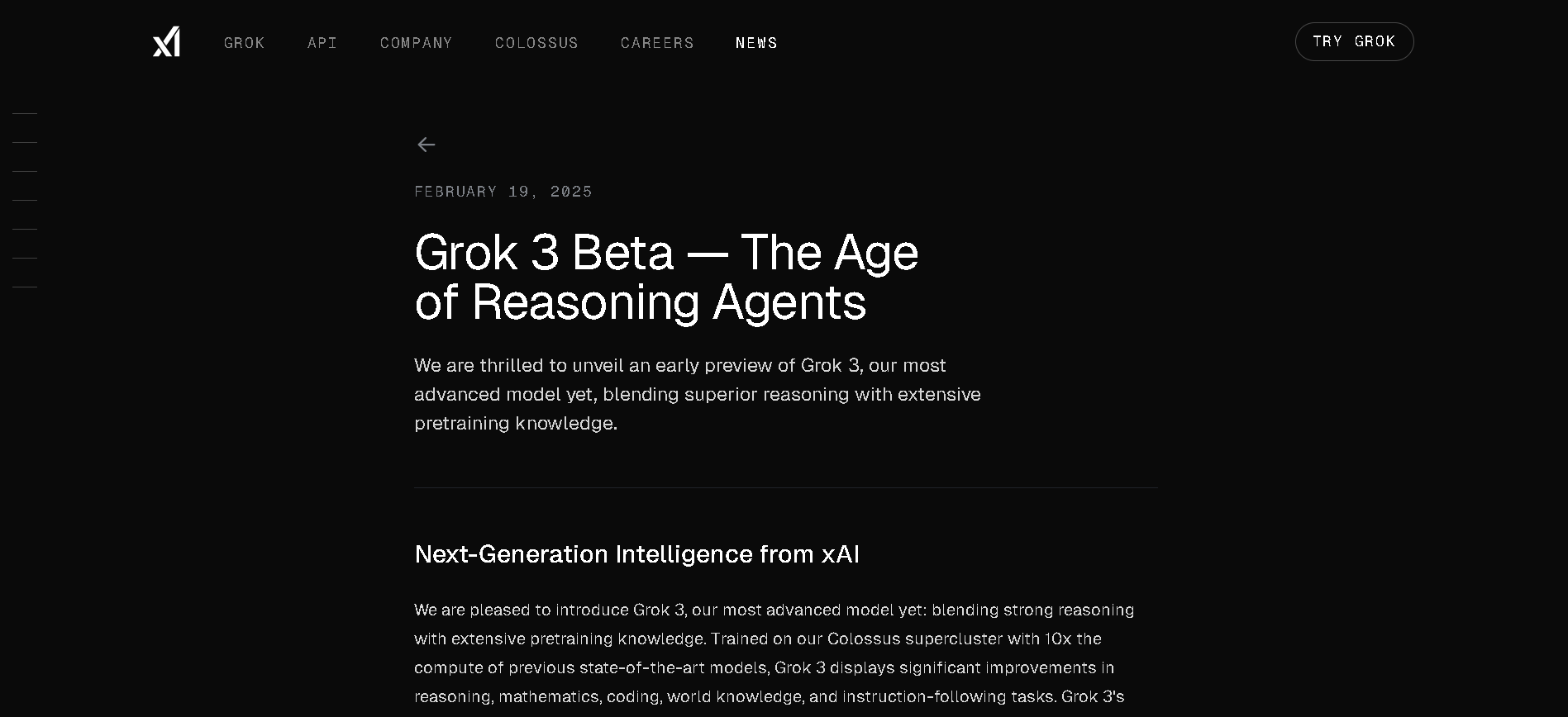

Grok 3
Grok 3 is the latest flagship chatbot by Elon Musk’s xAI, described as "the world’s smartest AI." It was trained on a massive 200,000‑GPU supercomputer and offers tenfold more computing power than Grok 2. Equipped with two reasoning modes—Think and Big Brain—and featuring DeepSearch (a contextual web-and-X research tool), Grok 3 excels in math, science, coding, and truth-seeking tasks—all while offering fast, lively conversational style.


Grok 3
Grok 3 is the latest flagship chatbot by Elon Musk’s xAI, described as "the world’s smartest AI." It was trained on a massive 200,000‑GPU supercomputer and offers tenfold more computing power than Grok 2. Equipped with two reasoning modes—Think and Big Brain—and featuring DeepSearch (a contextual web-and-X research tool), Grok 3 excels in math, science, coding, and truth-seeking tasks—all while offering fast, lively conversational style.


Grok 3
Grok 3 is the latest flagship chatbot by Elon Musk’s xAI, described as "the world’s smartest AI." It was trained on a massive 200,000‑GPU supercomputer and offers tenfold more computing power than Grok 2. Equipped with two reasoning modes—Think and Big Brain—and featuring DeepSearch (a contextual web-and-X research tool), Grok 3 excels in math, science, coding, and truth-seeking tasks—all while offering fast, lively conversational style.
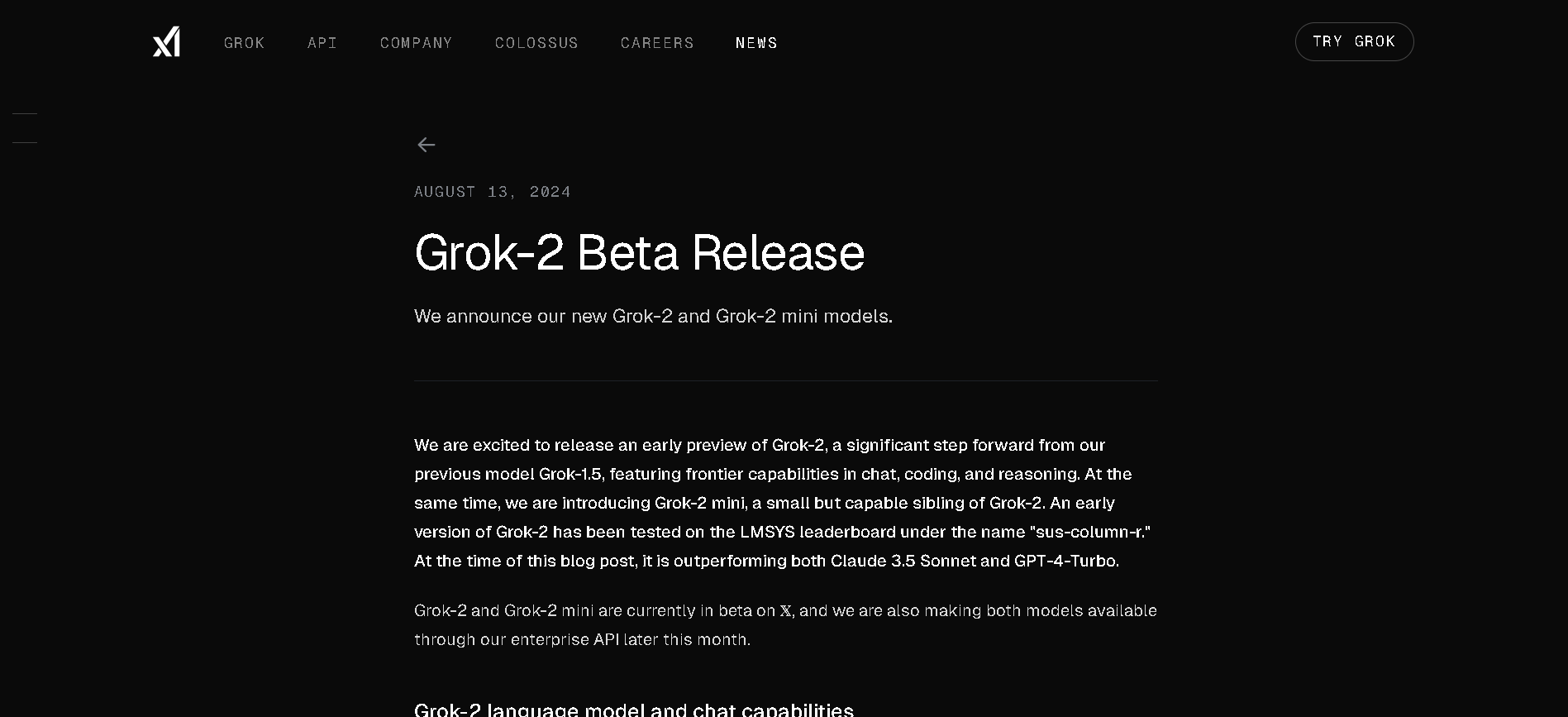
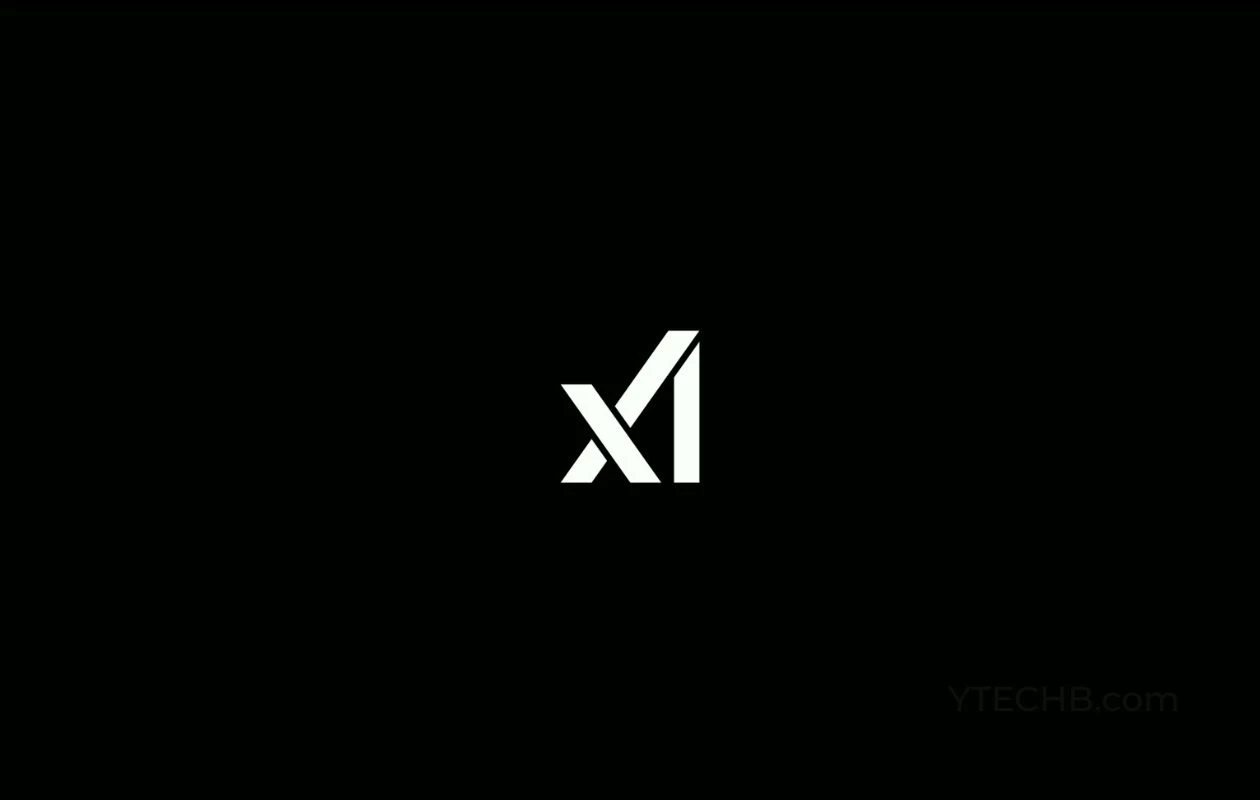
grok-2-latest
Grok 2 is xAI’s second-generation chatbot model, launched in August 2024 as a substantial upgrade over Grok 1.5. It delivers frontier-level performance in chat, coding, reasoning, vision tasks, and image generation via the FLUX.1 system. On leaderboards, it outscored Claude 3.5 Sonnet and GPT‑4 Turbo, with strong results in GPQA (56%), MMLU (87.5%), MATH (76.1%), HumanEval (88.4%), MathVista, and DocVQA benchmarks.


grok-2-latest
Grok 2 is xAI’s second-generation chatbot model, launched in August 2024 as a substantial upgrade over Grok 1.5. It delivers frontier-level performance in chat, coding, reasoning, vision tasks, and image generation via the FLUX.1 system. On leaderboards, it outscored Claude 3.5 Sonnet and GPT‑4 Turbo, with strong results in GPQA (56%), MMLU (87.5%), MATH (76.1%), HumanEval (88.4%), MathVista, and DocVQA benchmarks.


grok-2-latest
Grok 2 is xAI’s second-generation chatbot model, launched in August 2024 as a substantial upgrade over Grok 1.5. It delivers frontier-level performance in chat, coding, reasoning, vision tasks, and image generation via the FLUX.1 system. On leaderboards, it outscored Claude 3.5 Sonnet and GPT‑4 Turbo, with strong results in GPQA (56%), MMLU (87.5%), MATH (76.1%), HumanEval (88.4%), MathVista, and DocVQA benchmarks.
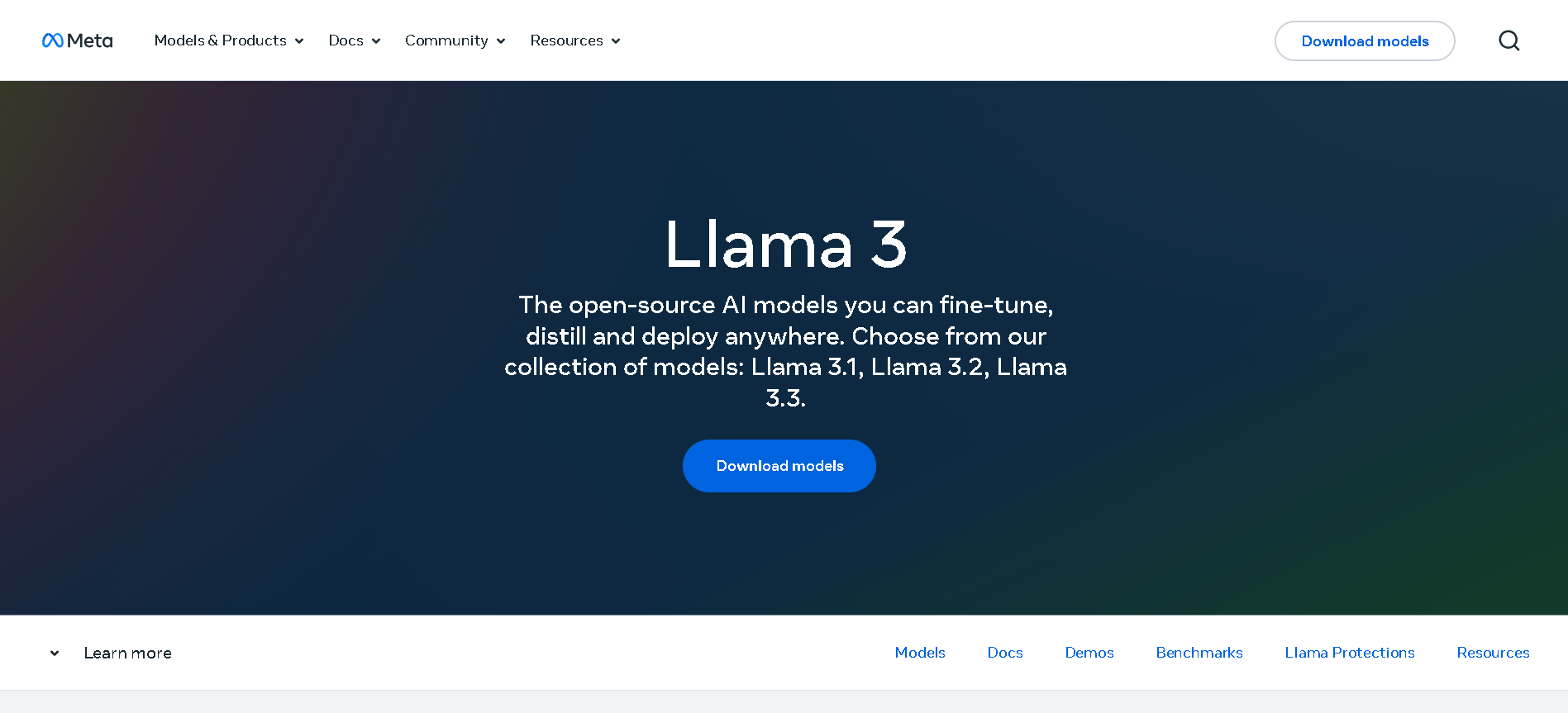

Meta Llama 3.3
Llama 3.3 is Meta’s instruction-tuned, text-only large language model released on December 6, 2024, available in a 70B-parameter size. It matches the performance of much larger models using significantly fewer parameters, is multilingual across eight key languages, and supports a massive 128,000-token context window—ideal for handling long-form documents, codebases, and detailed reasoning tasks.


Meta Llama 3.3
Llama 3.3 is Meta’s instruction-tuned, text-only large language model released on December 6, 2024, available in a 70B-parameter size. It matches the performance of much larger models using significantly fewer parameters, is multilingual across eight key languages, and supports a massive 128,000-token context window—ideal for handling long-form documents, codebases, and detailed reasoning tasks.


Meta Llama 3.3
Llama 3.3 is Meta’s instruction-tuned, text-only large language model released on December 6, 2024, available in a 70B-parameter size. It matches the performance of much larger models using significantly fewer parameters, is multilingual across eight key languages, and supports a massive 128,000-token context window—ideal for handling long-form documents, codebases, and detailed reasoning tasks.
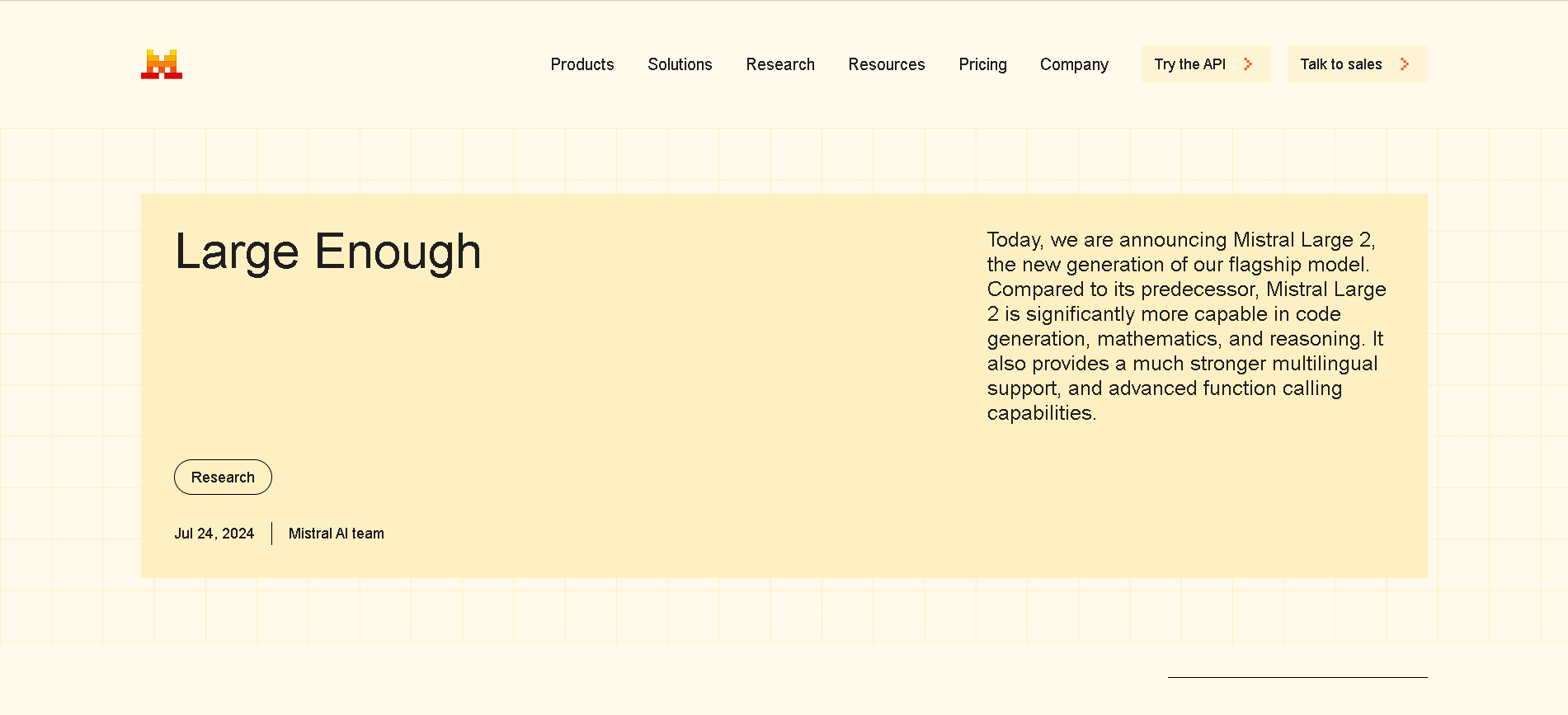
Mistral Large 2
Mistral Large 2 is the second-generation flagship model from Mistral AI, released in July 2024. Also referenced as mistral-large-2407, it’s a 123 B-parameter dense LLM with a 128 K-token context window, supporting dozens of languages and 80+ coding languages. It excels in reasoning, code generation, mathematics, instruction-following, and function calling—designed for high throughput on single-node setups.

Mistral Large 2
Mistral Large 2 is the second-generation flagship model from Mistral AI, released in July 2024. Also referenced as mistral-large-2407, it’s a 123 B-parameter dense LLM with a 128 K-token context window, supporting dozens of languages and 80+ coding languages. It excels in reasoning, code generation, mathematics, instruction-following, and function calling—designed for high throughput on single-node setups.

Mistral Large 2
Mistral Large 2 is the second-generation flagship model from Mistral AI, released in July 2024. Also referenced as mistral-large-2407, it’s a 123 B-parameter dense LLM with a 128 K-token context window, supporting dozens of languages and 80+ coding languages. It excels in reasoning, code generation, mathematics, instruction-following, and function calling—designed for high throughput on single-node setups.
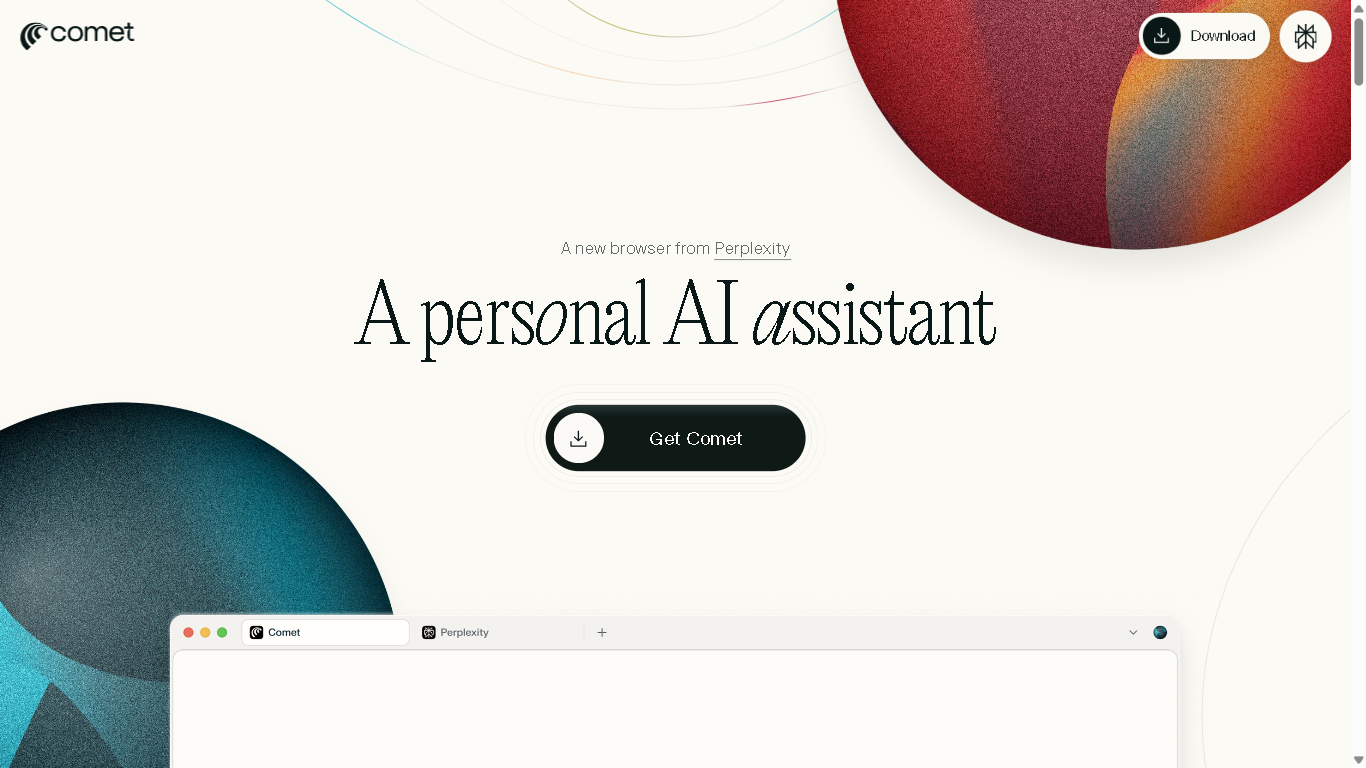
Perplexity Comet
Perplexity Comet is an AI-augmented browser that blends web search, chat, and automation into a unified environment. Rather than switching between browser tabs and chat windows, Comet allows users to ask questions, explore content, and execute tasks all within the browsing flow. It acts like a conversational companion embedded in your web experience, helping you dig deeper into topics, compare different sources, and interact with pages more intelligently.

Perplexity Comet
Perplexity Comet is an AI-augmented browser that blends web search, chat, and automation into a unified environment. Rather than switching between browser tabs and chat windows, Comet allows users to ask questions, explore content, and execute tasks all within the browsing flow. It acts like a conversational companion embedded in your web experience, helping you dig deeper into topics, compare different sources, and interact with pages more intelligently.

Perplexity Comet
Perplexity Comet is an AI-augmented browser that blends web search, chat, and automation into a unified environment. Rather than switching between browser tabs and chat windows, Comet allows users to ask questions, explore content, and execute tasks all within the browsing flow. It acts like a conversational companion embedded in your web experience, helping you dig deeper into topics, compare different sources, and interact with pages more intelligently.
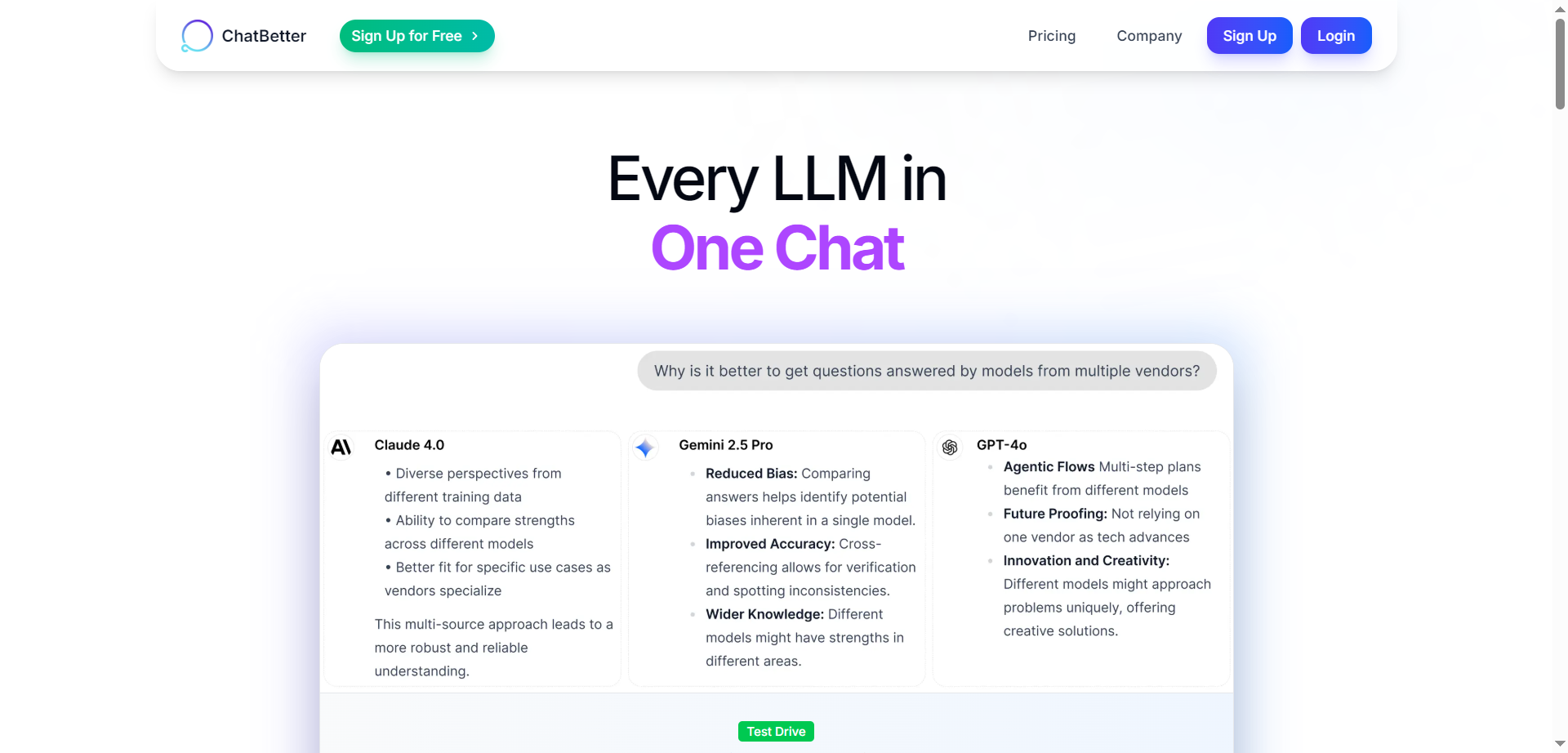
ChatBetter
ChatBetter is an AI platform designed to unify access to all major large language models (LLMs) within a single chat interface. Built for productivity and accuracy, ChatBetter leverages automatic model selection to route every query to the most capable AI—eliminating guesswork about which model to use. Users can directly compare responses from OpenAI, Anthropic, Google, Meta, DeepSeek, Perplexity, Mistral, xAI, and Cohere models side by side, or merge answers for comprehensive insights. The system is crafted for teams and individuals alike, enabling complex research, planning, and writing tasks to be accomplished efficiently in one place.

ChatBetter
ChatBetter is an AI platform designed to unify access to all major large language models (LLMs) within a single chat interface. Built for productivity and accuracy, ChatBetter leverages automatic model selection to route every query to the most capable AI—eliminating guesswork about which model to use. Users can directly compare responses from OpenAI, Anthropic, Google, Meta, DeepSeek, Perplexity, Mistral, xAI, and Cohere models side by side, or merge answers for comprehensive insights. The system is crafted for teams and individuals alike, enabling complex research, planning, and writing tasks to be accomplished efficiently in one place.

ChatBetter
ChatBetter is an AI platform designed to unify access to all major large language models (LLMs) within a single chat interface. Built for productivity and accuracy, ChatBetter leverages automatic model selection to route every query to the most capable AI—eliminating guesswork about which model to use. Users can directly compare responses from OpenAI, Anthropic, Google, Meta, DeepSeek, Perplexity, Mistral, xAI, and Cohere models side by side, or merge answers for comprehensive insights. The system is crafted for teams and individuals alike, enabling complex research, planning, and writing tasks to be accomplished efficiently in one place.
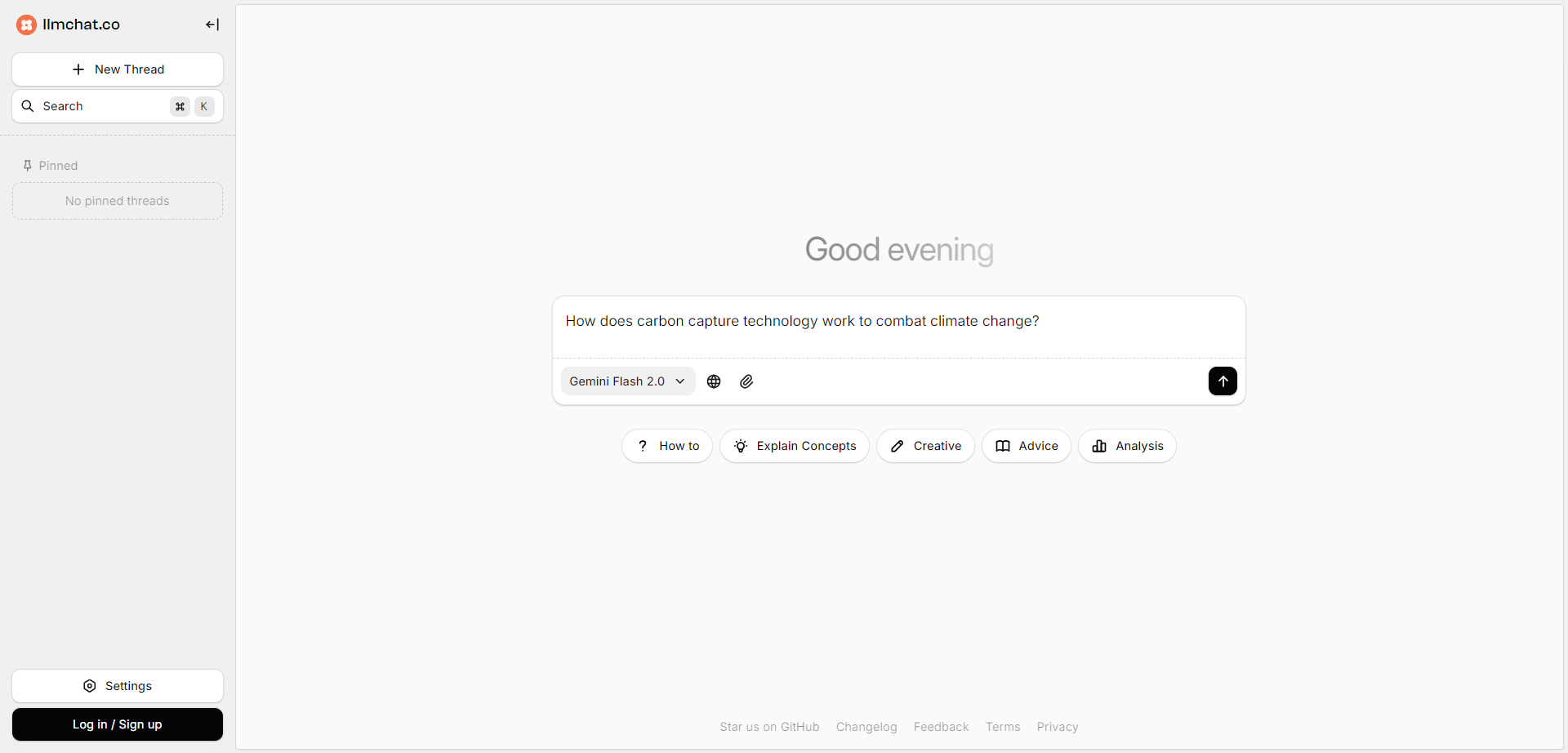
LLM Chat
LLMChat is a privacy-focused, open-source AI chatbot platform designed for advanced research, agentic workflows, and seamless interaction with multiple large language models (LLMs). It offers users a minimalistic and intuitive interface enabling deep exploration of complex topics with modes like Deep Research and Pro Search, which incorporates real-time web integration for current data. The platform emphasizes user privacy by storing all chat history locally in the browser, ensuring conversations never leave the device. LLMChat supports many popular LLM providers such as OpenAI, Anthropic, Google, and more, allowing users to customize AI assistants with personalized instructions and knowledge bases for a wide variety of applications ranging from research to content generation and coding assistance.

LLM Chat
LLMChat is a privacy-focused, open-source AI chatbot platform designed for advanced research, agentic workflows, and seamless interaction with multiple large language models (LLMs). It offers users a minimalistic and intuitive interface enabling deep exploration of complex topics with modes like Deep Research and Pro Search, which incorporates real-time web integration for current data. The platform emphasizes user privacy by storing all chat history locally in the browser, ensuring conversations never leave the device. LLMChat supports many popular LLM providers such as OpenAI, Anthropic, Google, and more, allowing users to customize AI assistants with personalized instructions and knowledge bases for a wide variety of applications ranging from research to content generation and coding assistance.

LLM Chat
LLMChat is a privacy-focused, open-source AI chatbot platform designed for advanced research, agentic workflows, and seamless interaction with multiple large language models (LLMs). It offers users a minimalistic and intuitive interface enabling deep exploration of complex topics with modes like Deep Research and Pro Search, which incorporates real-time web integration for current data. The platform emphasizes user privacy by storing all chat history locally in the browser, ensuring conversations never leave the device. LLMChat supports many popular LLM providers such as OpenAI, Anthropic, Google, and more, allowing users to customize AI assistants with personalized instructions and knowledge bases for a wide variety of applications ranging from research to content generation and coding assistance.
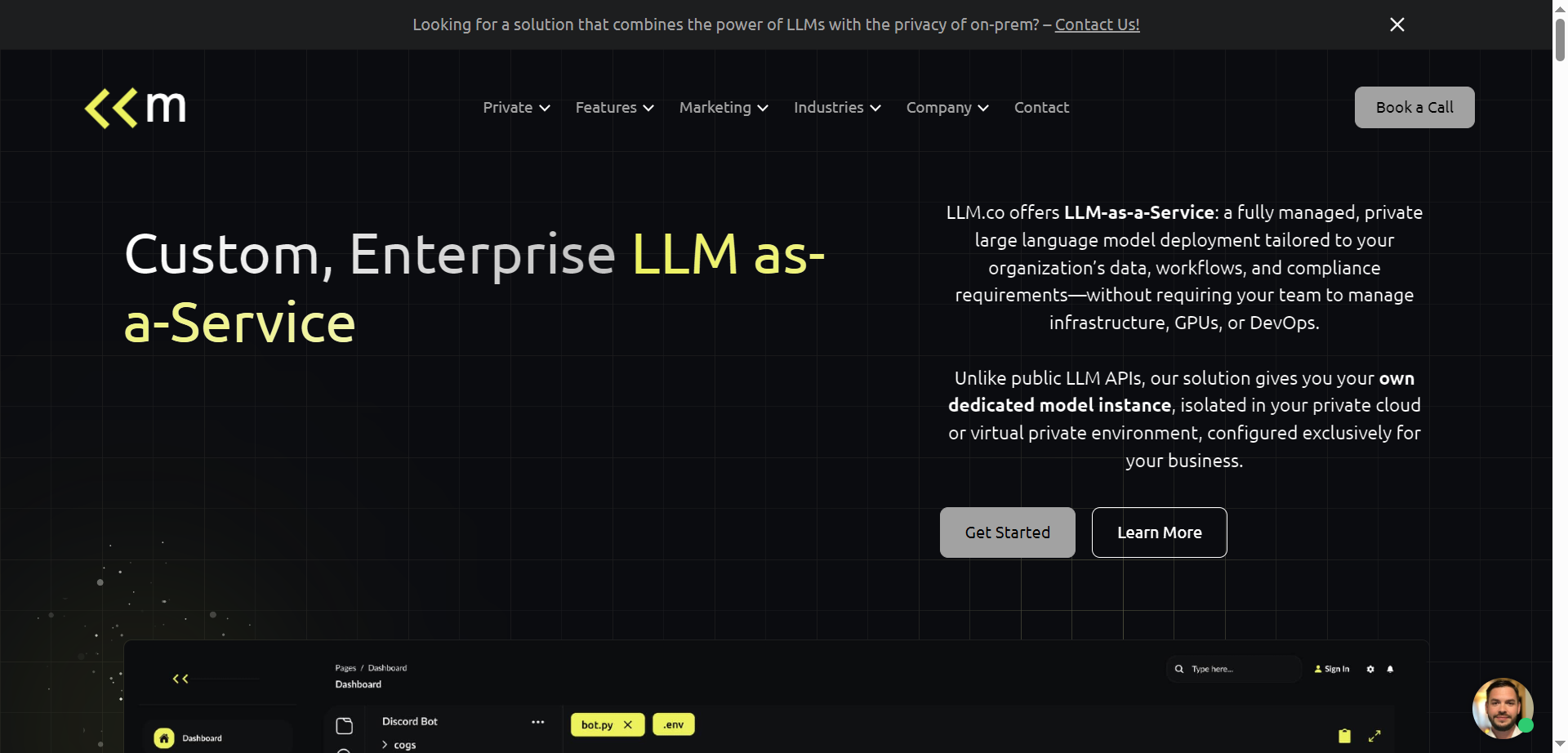
LLM as-a-service
LLM.co LLM-as-a-Service (LLMaaS) is a secure, enterprise-grade AI platform that provides private and fully managed large language model deployments tailored to an organization’s specific industry, workflows, and data. Unlike public LLM APIs, each client receives a dedicated, single-tenant model hosted in private clouds or virtual private clouds (VPCs), ensuring complete data privacy and compliance. The platform offers model fine-tuning on proprietary internal documents, semantic search, multi-document Q&A, custom AI agents, contract review, and offline AI capabilities for regulated industries. It removes infrastructure burdens by handling deployment, scaling, and monitoring, while enabling businesses to customize models for domain-specific language, regulatory compliance, and unique operational needs.

LLM as-a-service
LLM.co LLM-as-a-Service (LLMaaS) is a secure, enterprise-grade AI platform that provides private and fully managed large language model deployments tailored to an organization’s specific industry, workflows, and data. Unlike public LLM APIs, each client receives a dedicated, single-tenant model hosted in private clouds or virtual private clouds (VPCs), ensuring complete data privacy and compliance. The platform offers model fine-tuning on proprietary internal documents, semantic search, multi-document Q&A, custom AI agents, contract review, and offline AI capabilities for regulated industries. It removes infrastructure burdens by handling deployment, scaling, and monitoring, while enabling businesses to customize models for domain-specific language, regulatory compliance, and unique operational needs.

LLM as-a-service
LLM.co LLM-as-a-Service (LLMaaS) is a secure, enterprise-grade AI platform that provides private and fully managed large language model deployments tailored to an organization’s specific industry, workflows, and data. Unlike public LLM APIs, each client receives a dedicated, single-tenant model hosted in private clouds or virtual private clouds (VPCs), ensuring complete data privacy and compliance. The platform offers model fine-tuning on proprietary internal documents, semantic search, multi-document Q&A, custom AI agents, contract review, and offline AI capabilities for regulated industries. It removes infrastructure burdens by handling deployment, scaling, and monitoring, while enabling businesses to customize models for domain-specific language, regulatory compliance, and unique operational needs.
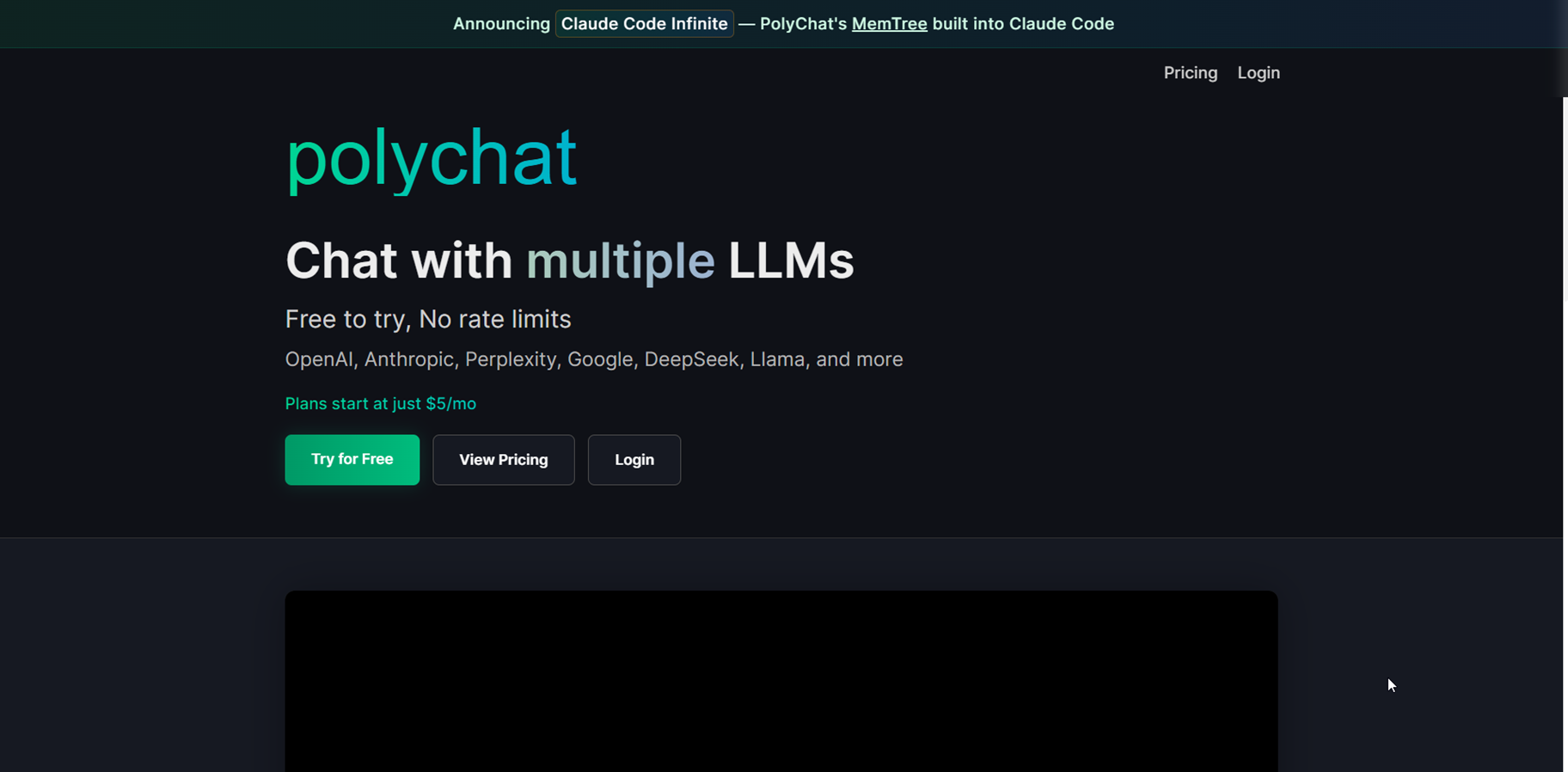
polychat
polychat is a multi-LLM chat platform that lets you interact with numerous AI models like OpenAI, Anthropic, Perplexity, Google, DeepSeek, Llama, and others in one interface, with free trials and no rate limits. Switch between models seamlessly for the best responses to your queries, whether coding, writing, or research, all at affordable plans starting $5/month. It's designed for power users wanting flexibility without juggling multiple apps or hitting usage caps quickly.

polychat
polychat is a multi-LLM chat platform that lets you interact with numerous AI models like OpenAI, Anthropic, Perplexity, Google, DeepSeek, Llama, and others in one interface, with free trials and no rate limits. Switch between models seamlessly for the best responses to your queries, whether coding, writing, or research, all at affordable plans starting $5/month. It's designed for power users wanting flexibility without juggling multiple apps or hitting usage caps quickly.

polychat
polychat is a multi-LLM chat platform that lets you interact with numerous AI models like OpenAI, Anthropic, Perplexity, Google, DeepSeek, Llama, and others in one interface, with free trials and no rate limits. Switch between models seamlessly for the best responses to your queries, whether coding, writing, or research, all at affordable plans starting $5/month. It's designed for power users wanting flexibility without juggling multiple apps or hitting usage caps quickly.
Editorial Note
This page was researched and written by the ATB Editorial Team. Our team researches each AI tool by reviewing its official website, testing features, exploring real use cases, and considering user feedback. Every page is fact-checked and regularly updated to ensure the information stays accurate, neutral, and useful for our readers.
If you have any suggestions or questions, email us at hello@aitoolbook.ai
